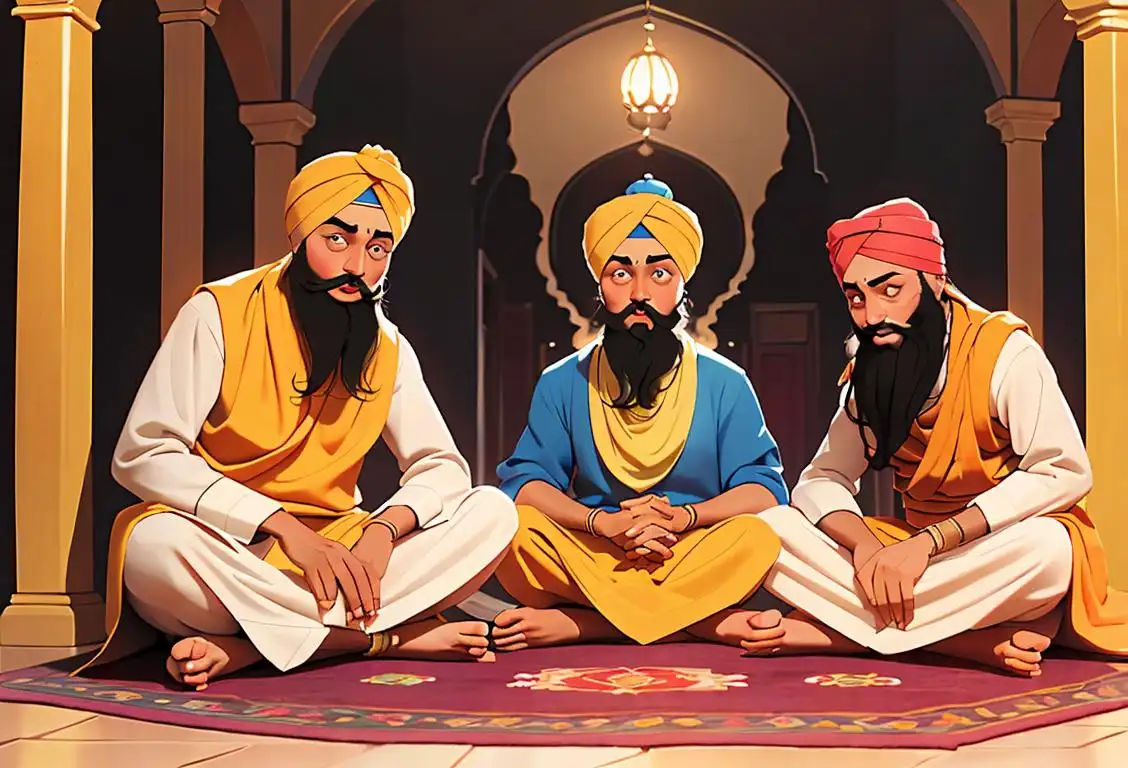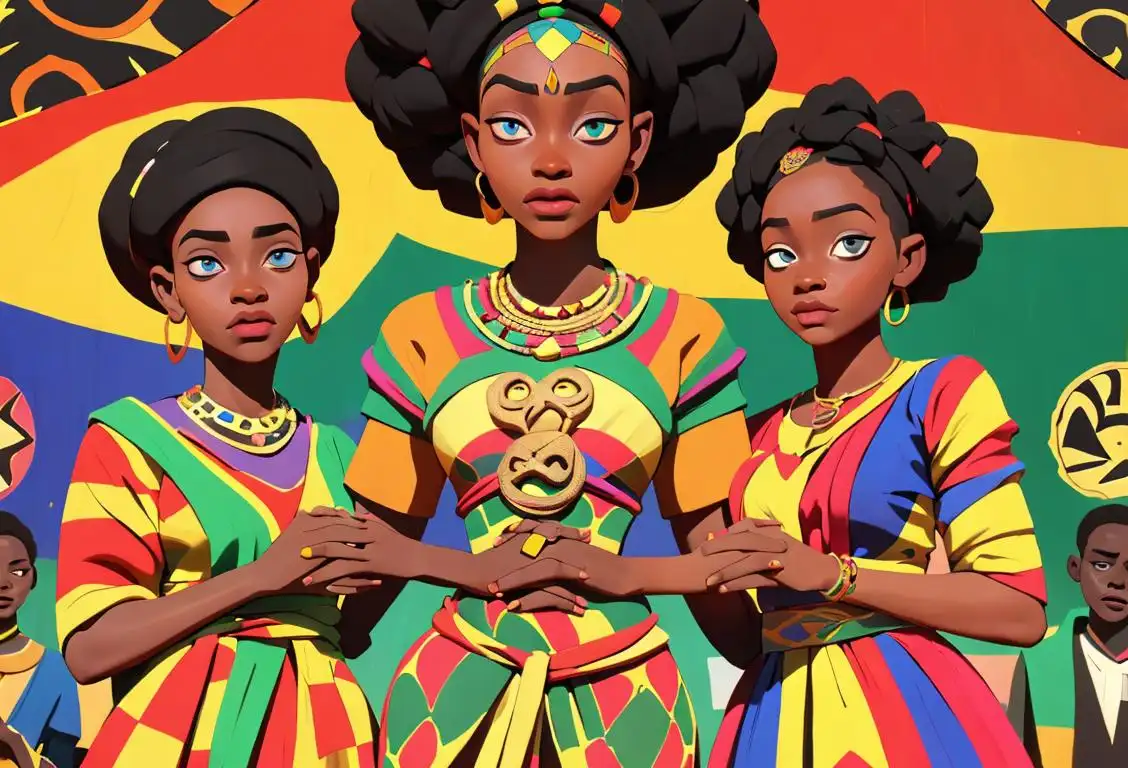National Sikh Day

Hey there, folks! Prepare yourself for a celebration that's not only joyous but also steeped in culture and tradition. It's time for National Sikh Day!
When is Sikh Day?
It's national sikh day on the 21st May.
The Internet History of National Sikh Day
Gather 'round, history buffs, as we delve into the fascinating origins of National Sikh Day. This special day has its roots in the Sikh faith, a religion that originated in the Punjab region of India. Sikhs are known for their unwavering devotion to equality, justice, and peace.
Every year on this auspicious occasion, individuals and communities come together to honor the birth of the Khalsa, a unique order within Sikhism. The Khalsa was established in 1699 by Guru Gobind Singh Ji, the tenth and final living Guru of the Sikhs.
On National Sikh Day, Sikhs and non-Sikhs alike celebrate the teachings and values of Sikhism. It's a joyful time filled with prayer, music, food, and community service. People gather at gurdwaras, which are Sikh places of worship, to share in the festivities and partake in langar, a sacred community meal where everyone is welcome.
Diving into Sikh History
Let's take a brief dive into the history of Sikhism, shall we? The religion was founded in the late 15th century by Guru Nanak Dev Ji, who preached the importance of equality, selfless service, and devotion to God. Guru Nanak Dev Ji's teachings laid the foundation for what would later become Sikhism.
Over the centuries, Sikhism evolved as the Gurus passed on their divine wisdom to the Sikh community. The faith is characterized by its strong belief in one God, the emphasis on truthful living, and the importance of serving others. Sikhs adhere to a strict moral code and strive to live a life of integrity, compassion, and humility.
Today, Sikhs can be found all around the world, spreading the message of love, peace, and justice. They are easily identifiable by their distinct appearance, which includes unshorn hair covered by a turban for men and a dastaar or scarf for women.
Fun Fact Time!
Did you know that the word 'Sikh' means 'disciple' or 'learner' in Punjabi? It reflects the continuous journey of learning and spiritual growth that Sikhs undertake throughout their lives.
History behind the term 'Sikh'
1469
Birth of Guru Nanak
In the year 1469, Guru Nanak, the central figure in Sikhism, was born in the village of Talwandi in Punjab, now known as Nankana Sahib. Guru Nanak is considered the founder of the Sikh faith and his teachings form the core principles of Sikhism.
1699
Establishment of the Khalsa
In 1699, Guru Gobind Singh, the tenth and last Guru of the Sikhs, established the Khalsa. This was a significant event in Sikh history as it marked the formalization of Sikh identity and the birth of the Khalsa Panth (community). The Khalsa were initiated through a ceremony known as Amrit Sanchar, where individuals received amrit (sweetened water) and became baptized Sikhs.
1801
Anglicization of the term 'Sikh'
The term 'Sikh' is believed to have originated from the Sanskrit word 'shishya,' meaning disciple or learner. Over time, the term evolved and in the year 1801, it was anglicized to 'Sikh' by British officials. This anglicization helped establish a universal term for followers of the Sikh faith.
1947
Partition of India and Pakistan
The partition of India in 1947 resulted in the creation of two separate nations: India and Pakistan. This political division also had an impact on the Sikh community, as the majority of Sikhs found themselves in the newly formed nation of India. Sikhs played a significant role in the Indian independence movement and continue to be an integral part of Indian society.
20th Century
Sikh diaspora and global spread
During the 20th century, the Sikh diaspora began to spread across the globe, particularly in countries such as the United Kingdom, Canada, and the United States. Sikhs migrated for various reasons, including economic opportunities and political stability. Today, Sikh communities can be found in many countries, contributing to the cultural diversity of these nations.
Did you know?
Fun Fact: Did you know that the word 'Sikh' means 'disciple' or 'learner' in Punjabi? It reflects the continuous journey of learning and spiritual growth that Sikhs undertake throughout their lives.Tagged
awareness community culture equality religionFirst identified
4th April 2017Most mentioned on
21st May 2018Total mentions
31Other days
Sikh Day
Black People Day
Black Consciousness Day
Indigenous Persons Day
Black Mamas Bail Out Day
Thug Day
Handloom Day
Philanthropy Day
History Day
Prescription Drug Take Back Day






